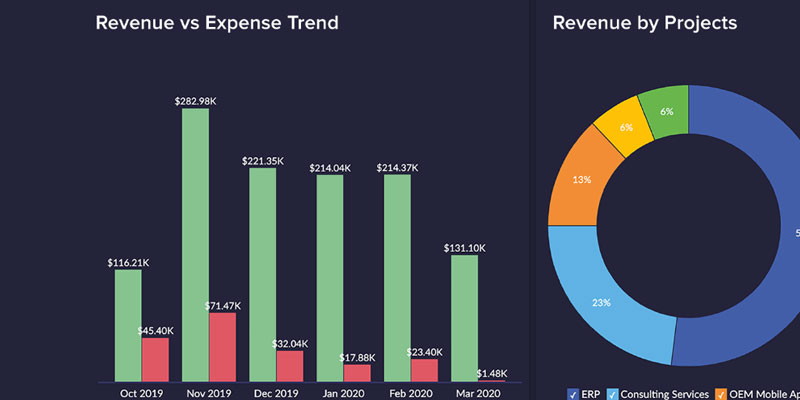What's A Fee-Based Investment?
Oct 05, 2023 By Triston Martin
When a financial advisor recommends an investment product to a client, that advisor may get a sales commission from the investment provider in addition to the fee paid by the client. Financial organizations like banks and investment firms can provide customers with fee-based investments.
Any investment suggested by a financial advisor who receives no other payment than the fees paid by clients is said to be fee-only. A "fee-based adviser" may charge a fixed percentage each year for all financial services provided to customers, which might be misleading. When recommending fee-based investments, this adviser may or may not earn commissions.
How Fee-Based Investments Operate

Various securities, including annuities, mutual funds, stocks, bonds, and others, can be purchased for a charge. At any rate, the sponsoring firm will pay a commission to the adviser whose customer purchases the asset.
A fee-based adviser may also be a commission-based advisor, in which they charge specific customers a fee while earning commissions on selling items to other clients.
The Costs of Investments

Fees for investment advice might be paid on a per-service or per-asset basis or as a flat yearly percentage of assets managed (AUM). Most of the advisor's services are included in the annual charge, which typically ranges from 1% to 3%.
Advisor commissions are often incorporated into the total cost to the investor. For instance, commissions given to consultants who recommend a mutual fund are factored into the cost ratio. The adviser receives a yearly fee for as long as the customer keeps the investment. It provides the adviser with a steady stream of income.
Things To Keep In Mind
Investments that require fees may create an appearance of impropriety. Advisors are financially incentivized to recommend the product with the highest commitment to their clients, regardless of the client's best interests. Both fee-based and fee-only financial advisors are subject to industry standards. Financial advisers might choose between the fiduciary and appropriateness criteria.
- Fiduciary advisors put customers' interests above their own when recommending investments.
- Advisors who follow the appropriateness criterion must offer assets that satisfy the client's age, income, retirement plans, and other measures.
The Securities and Exchange Commission (SEC) stipulate that advisers must reveal their fees to their clients.
Fee-Based Investments vs. Fees-Only Investments
For some products, a fee-based adviser may charge both a client fee and a commission from the investment sponsor, whereas, for others, they may charge either a client fee or only a commission. Recommendations that result in a commission for the adviser may be offered to some clients for reduced or no cost.
This is why a fee-based investment advisor may be more appealing to some individuals. Overall, the fees paid to the investment advisor might be less. Fee-only financial advisors are not compensated in any way by selling investment products.
They are relied upon because of the perception that they have no conflicts of interest. For a better description, they adhere to a fiduciary standard instead of a suitability requirement.
Illustration of a Fee-Based Investment
Let's look at a hypothetical scenario to illustrate further how fee-based investments function. Suppose Mr. Sharma encounters Ms. Jones, a fee-based financial counselor when he decides to open a retirement account. She recommends he open a brokerage account for his future earnings.
Ms. Jones analyzes Mr. Sharma's existing financial standing and plans. After creating a strategy, Ms. Jones recommends that Mr. Sharma spread his money among various investments, such as equities, bonds, mutual funds, exchange-traded funds (ETFs), and more.
Which Is Better: Fee-Based or Fee-Only Service?
The financial adviser recommends a fee-based investment product in exchange for a commission on the product's sale. As long as the investor continues to hold it, the sponsoring firm may pay the adviser a commission as part of the yearly fees payable to the investor. There is no commission paid to the adviser on a fee-only investment. Fees paid by clients are the only means through which the adviser is compensated.
What Is The Difference Between Fee-Based and Commission-Based?
The main difference between investment products that charge fees and commissions are minimal. Both scenarios include the adviser earning a commission from the product's sponsoring firm for making a successful recommendation. Extra costs for the advisor's services may or may not be charged to the customer in either scenario.
What Do Fee-Based Services Entail?
The phrase "fee-based services" causes misunderstandings. A financial adviser who charges a fixed fee each year as a proportion of their client's assets is said to provide fee-based services. One percent to three percent of assets is the typical charge. Contrast this with a fee-based investment, which provides a commission to the adviser upon sale.
On this page
How Fee-Based Investments Operate The Costs of Investments Things To Keep In Mind Fee-Based Investments vs. Fees-Only Investments Illustration of a Fee-Based Investment Which Is Better: Fee-Based or Fee-Only Service? What Is The Difference Between Fee-Based and Commission-Based? What Do Fee-Based Services Entail?
What's A Fee-Based Investment?

AmEx Gold vs. Platinum: Which Is Better for Your Business?

Sears Shop Your Way Mastercard Review

New Jersey Payroll Guide: Step-by-Step Teachings for Small Businesses

National Debt Relief

How exactly does Eventbrite make money?

How To Get A Mortgage Refinance Even If You Have Bad Credit

Types of Termination Letters and Essential Inclusions for Employers

2024's Essential Guide to the 7 Best Invoicing Software for Small Businesses

A Guide about Alliant Credit Union Personal Loans

Apple's Financials
